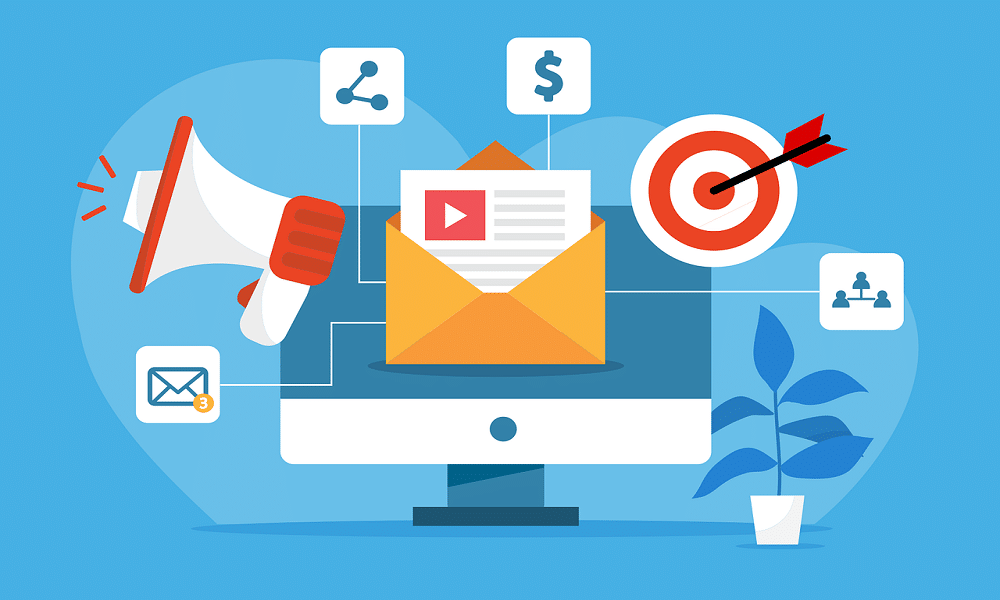In the world of business, today’s e-commerce companies need to use advanced technology to keep up with the competition effectively. One key tactic is to employ email marketing tools that cater to varying preferences and needs. Doing business can enhance customer connections, boost involvement, and increase sales. This article explores the intricacies of choosing and using top-notch email marketing software for excellent e-commerce experiences.
Understanding the Importance of Personalization
Modern marketing now emphasizes personalization as an element of communication with customers who anticipate tailored messages that cater to their preferences and actions beyond using their names in emails. However, by providing content that aligns with their unique interests and requirements, the best email marketing software for e-commerce facilitates this by automating the customization of messages to be pertinent and timely.
Choosing the Right Email Marketing Software
Choosing the software is essential for personalization efforts. The perfect solution should provide segmentation features, automation functionalities and compatibility with your online store platform. Seek out functions like templates, A/B testing and thorough analytics. These components will assist you enhance your marketing strategies and provide tailored experiences to your clientele.
Advanced Segmentation
Successful email marketing relies on segmentation tactics, which are used to categorise your email recipients into groups based on different factors like their previous purchases or browsing habits to deliver tailored content. This content resonates with them and boosts engagement rates effectively.
Automation Capabilities
Top-notch email marketing software also includes automation as an aspect of its functionality for businesses to create workflows that send out emails triggered by actions or events they set up in advance. For instance, if a customer leaves items in their shopping cart without finishing the purchase process, an automated email reminder could prompt them to go and complete the transaction. Likewise, welcome emails are automatically dispatched to subscribers to encourage their interactions with the brand.
Integration with E-commerce Platforms
Effective email marketing relies heavily on the integration of your e-commerce platform to access customer data, such as purchase history and browsing habits, for better targeting and personalization purposes. Make sure the software you choose supports integration with your current systems for a seamless operation.
Creating Engaging Content
Once you have the appropriate software installed and set up properly, the next step is to concentrate on creating content that captivates the audience. Creating engaging content plays a role in personalization endeavors. When crafting emails for individuals, it is essential to ensure they are visually attractive, brief yet informative, and tailored to the recipient’s interests. Utilize high-quality visuals, enticing lines, and clear prompts for action in your emails. Integrating personalization tokens can also enhance the email experience by including details about the individual, such as their name or recent purchases.
Using Analytics to Refine Strategies
Effective data analysis is essential for enhancing email marketing tactics to reach target audiences effectively and drive conversions successfully. This is possible with reports on how recipients open emails and engage with content, leading to better strategies tailored to audience preferences. Incorporating a Customer Data Platform can enhance this process by providing a unified view of customer behavior across multiple channels, allowing for even more precise personalization and targeting.
A/B Testing for Optimization
Split testing or A/B testing is a technique for improving email campaigns by sending out two versions of an email to separate groups of recipients and evaluating which one yields better results based on factors. These include the subject lines and images before using the insights to shape future campaigns effectively.
Implementing Dynamic Content
Email marketing software also offers a feature known as dynamic content, which enables the customization of content blocks based on the recipient’s information, such as gender preferences in products. For instance, a clothing retailer sends female customers personalised emails apart from a wider audience.
Ensuring Compliance with Regulations
Adhering to email marketing rules is vital for upholding trust and steering clear of penalties. Make sure your software aligns with regulations like the General Data Protection Regulation (GDPR) and the CAN Spam Act. Key components such as user options and transparent privacy guidelines are crucial in ensuring your mailing list stays current and free of clutter. This is also the key to staying compliant.
Nurturing Customer Relationships
Sending personalized emails for marketing is not about making sales but about building and maintaining customer connections effectively by providing them with valuable content. Content such as product suggestions and exclusive deals, along with informative articles to keep your brand in their minds constantly, are indispensable.
Summary
The discussion on the advantages of utilizing email marketing software for e-commerce experiences is never-ending. These tools provide a range of benefits including advanced segmentation and automation features along with captivating content and comprehensive analytics capabilities to facilitate the creation of tailored and pertinent campaigns that resonate with audiences effectively.


